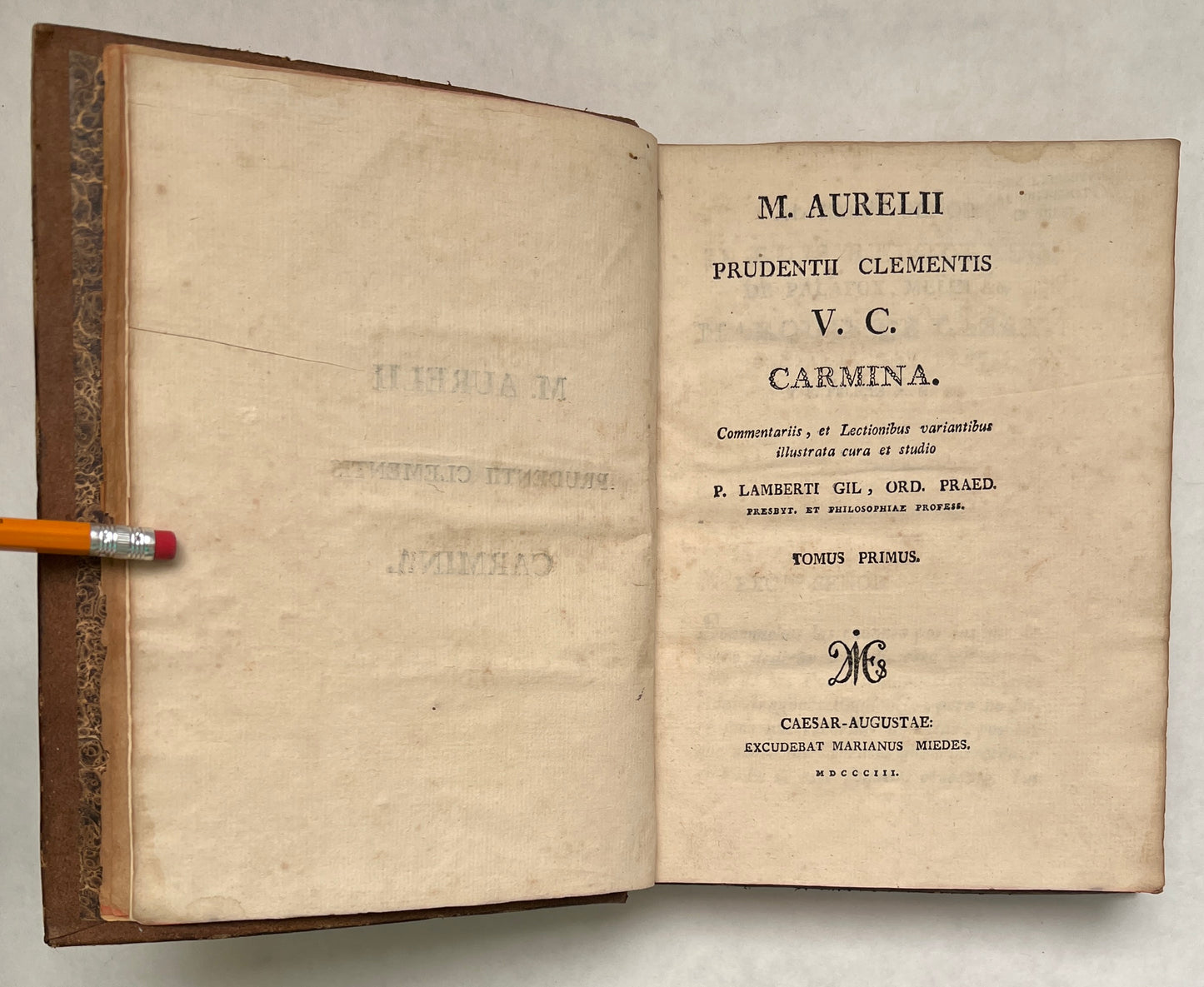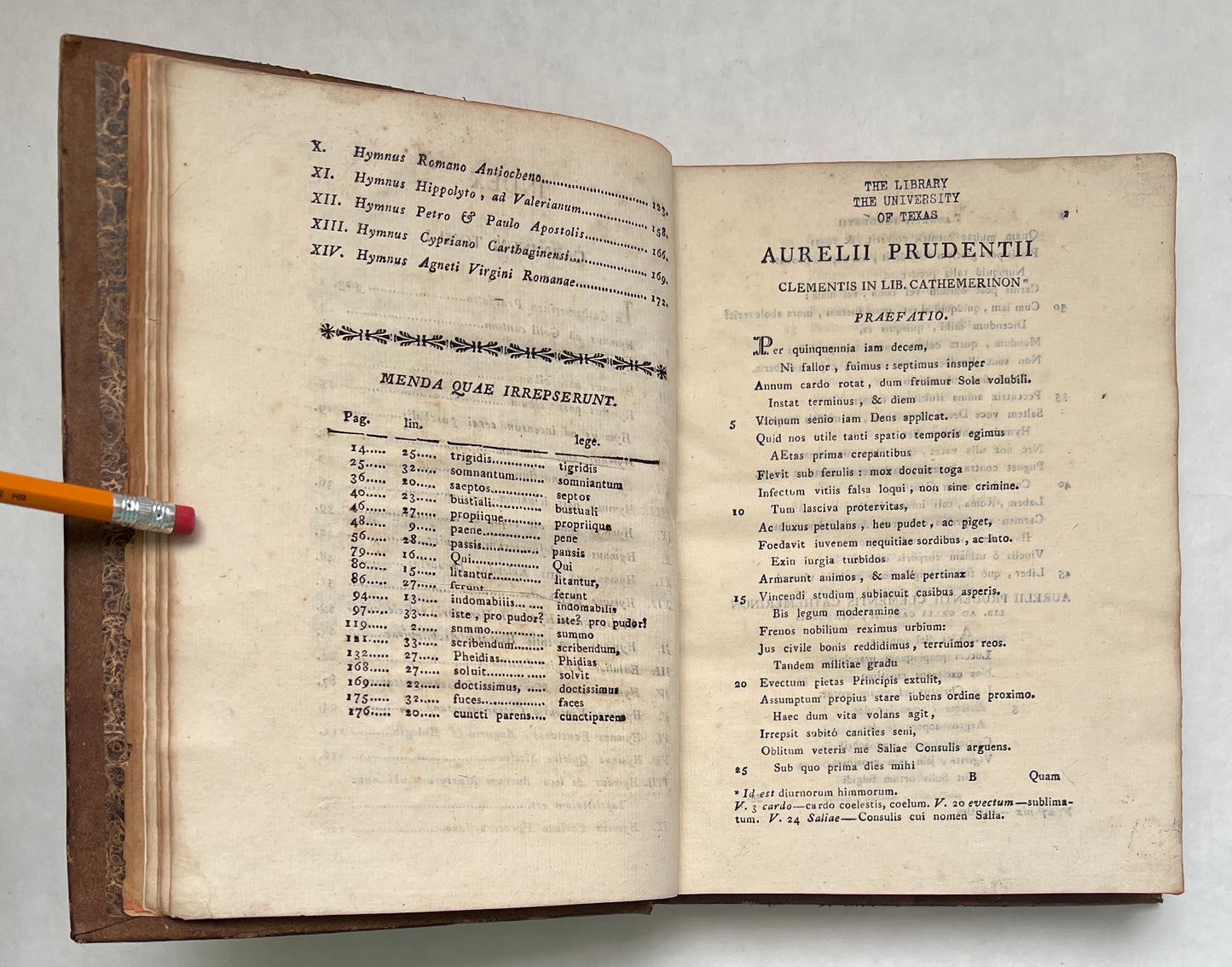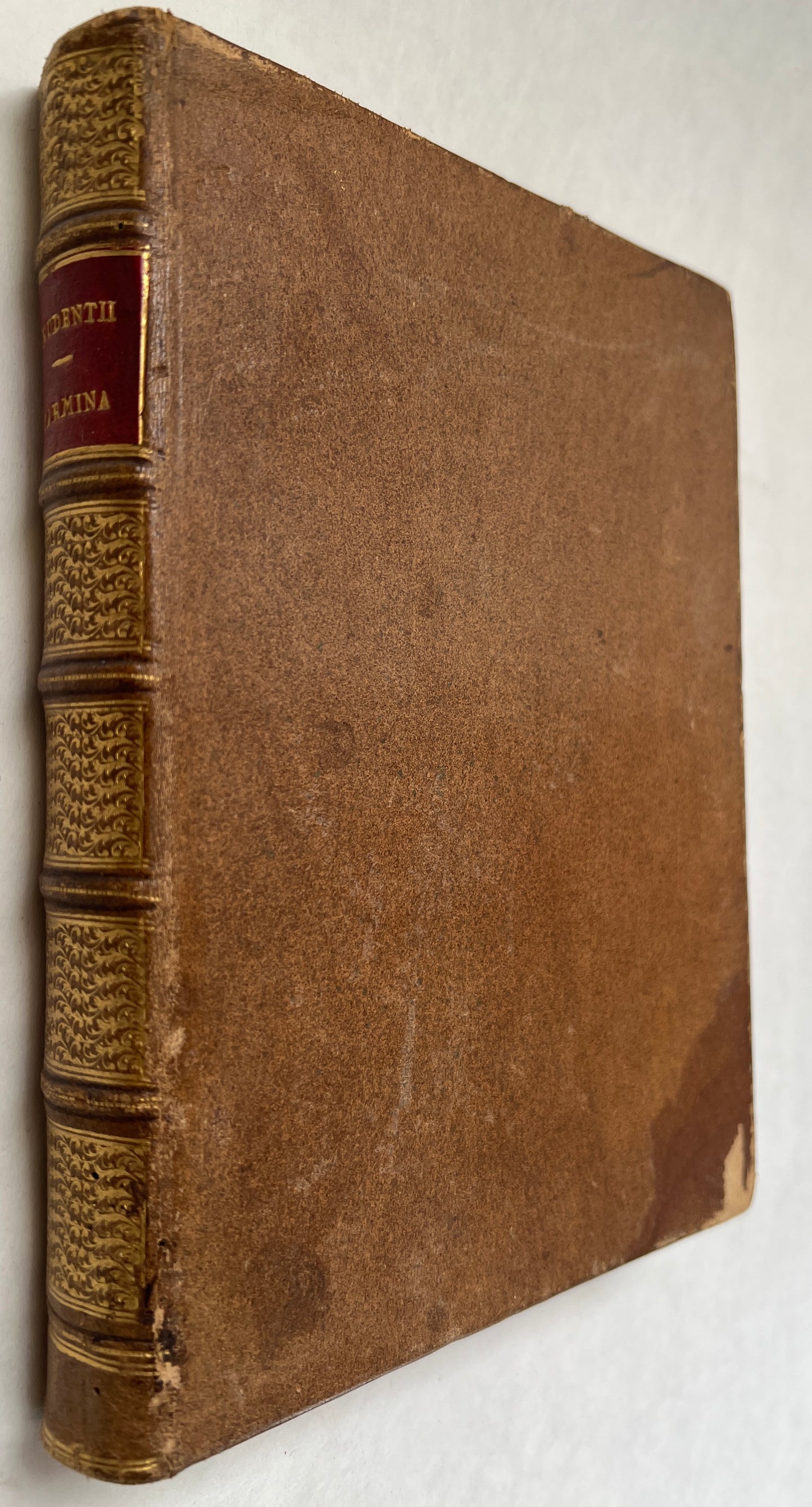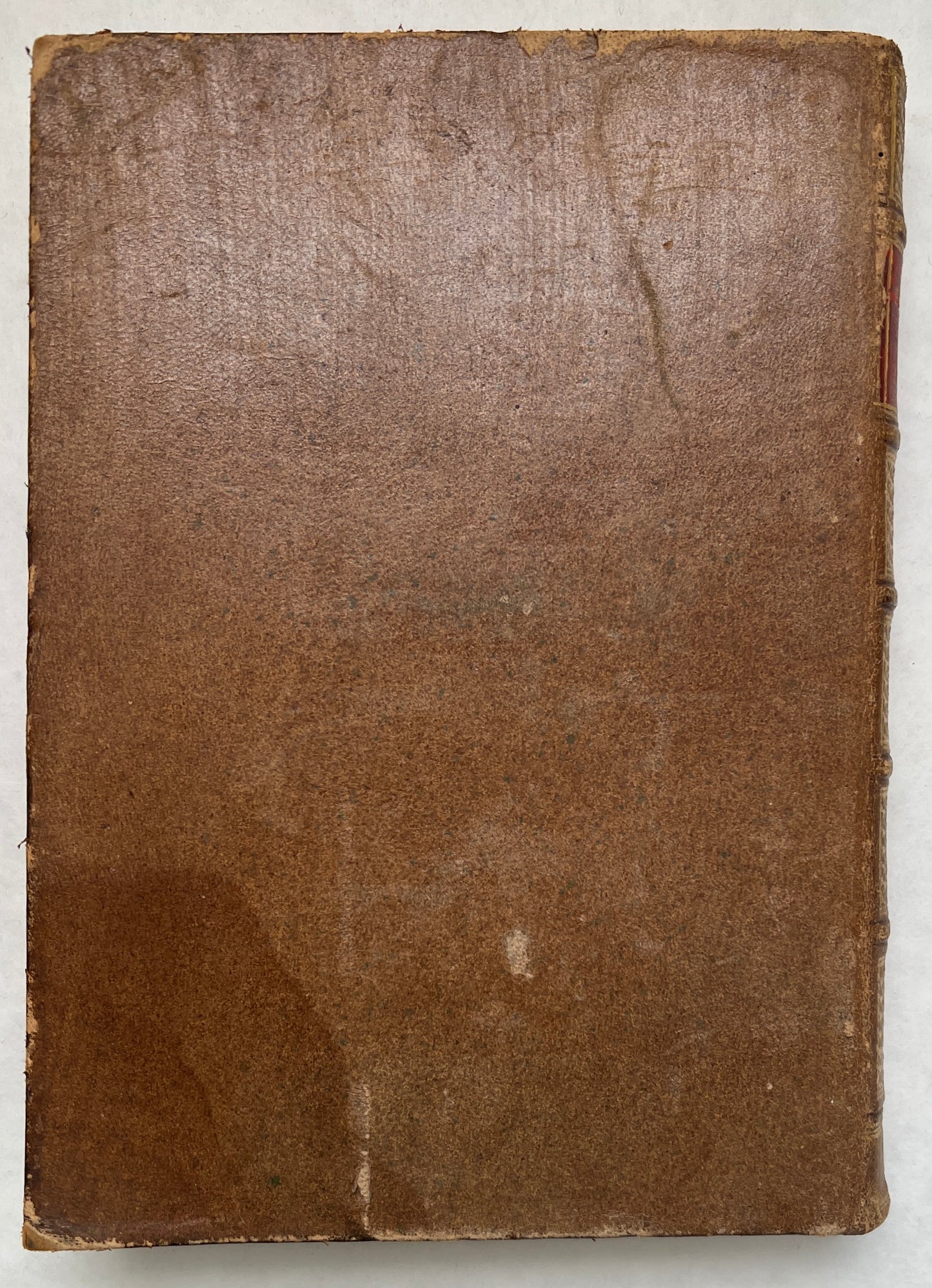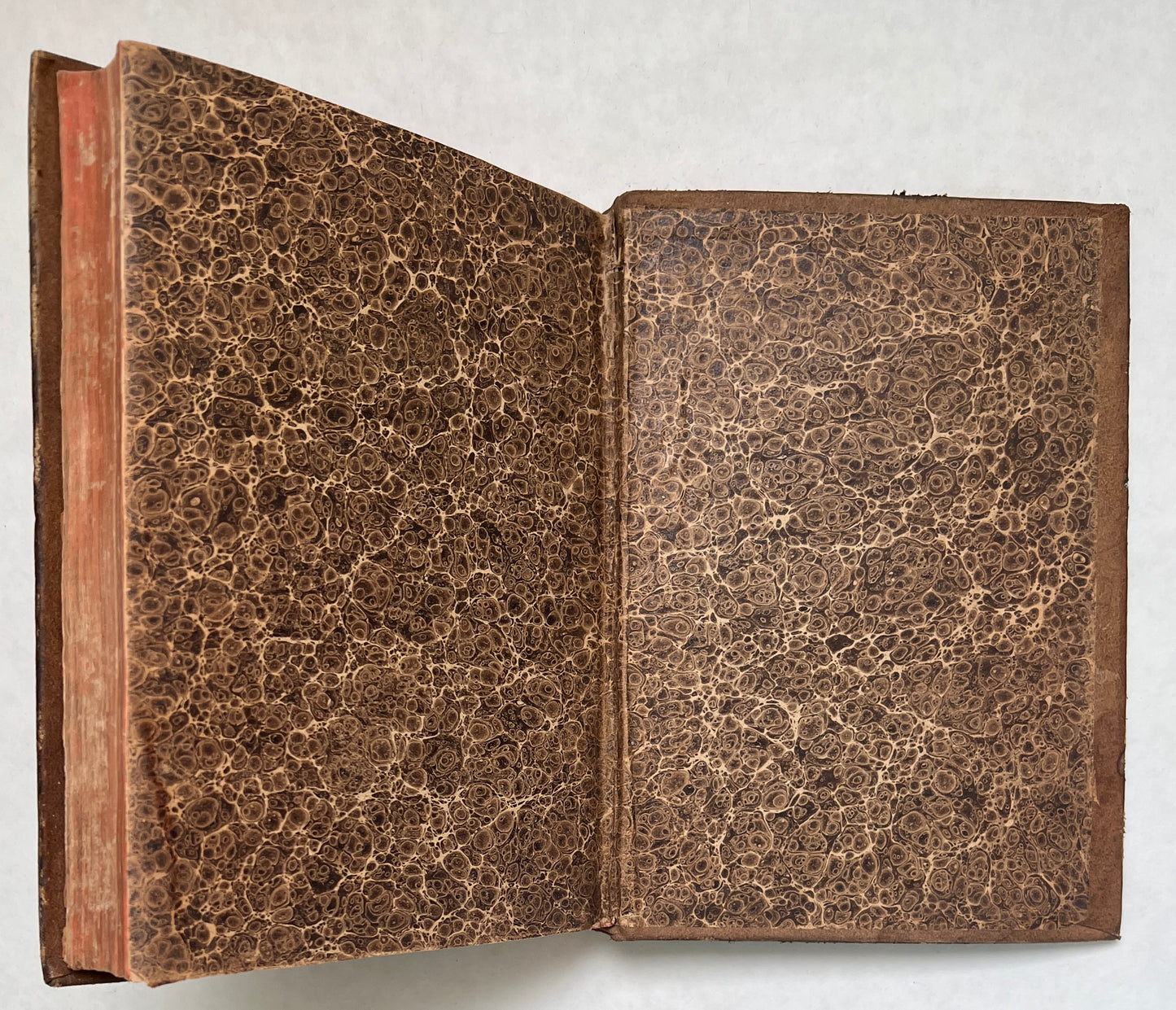Aurelii, M. (Aurelius Prudentius Clemens)
V. C. Carmina. Commentariis , et Lectionibus Variantibus Illustrata Cura et Studio | P. Lamberti Gil , Ord. Praed. | Presbyt. et Philosiphiae Profess. | Tomus Priums.
V. C. Carmina. Commentariis , et Lectionibus Variantibus Illustrata Cura et Studio | P. Lamberti Gil , Ord. Praed. | Presbyt. et Philosiphiae Profess. | Tomus Priums.
Couldn't load pickup availability
Caesar-Augustae [Zaragoza]: Excuderat Marianus Miedes, 1803. Large octavo in full brown leather (calf), raised bands and gilt to spine; 179 p.; 20 cm. Sewn. Ex-libris with minimal insitutional markings. A few small worm holes to outer margin of approximately twenty pages; minor external edge-wear to binding; else a very tight and crisp very good+ copy. . Hardcover. ISBN: Aurelius Prudentius Clemens
In Latin. Title page translates as: M. Aurelius Prudentius Clemens, Venerable Man. His Poems. Illustrated with commentary and variant readings, by the care and effort of P. Lambertus Gil, of the Order of Preachers, Presbyter, and Professor of Philosophy.Volume I.In Zaragoza: Published by Marianus Miedes, 1803. / Contains author's best known work, The Psychomachia. Ex-libris with minimal insitutional markings. Only one copy located via WorldCat. // "Aurelius Prudentius Clemens was a Roman Christian poet, born in the Roman province of Tarraconensis (now Northern Spain) in 348. He probably died in the Iberian Peninsula some time after 405, possibly around 413. The place of his birth is uncertain, but it may have been Caesaraugusta (Saragossa), Tarraco (Tarragona), or Calagurris (Calahorra). Prudentius practiced law with some success, and was twice provincial governor, perhaps in his native country, before the emperor Theodosius I summoned him to court. Towards the end of his life (possibly around 392) Prudentius retired from public life to become an ascetic, fasting until evening and abstaining entirely from animal food; and writing poems, hymns, and controversial works in defence of Christianity. Prudentius later collected the Christian poems written during this period and added a preface, which he himself dated 405. The poetry of Prudentius is influenced by early Christian authors, such as Tertullian and St. Ambrose, as well as the Bible and the acts of the martyrs. His hymn Da, puer, plectrum (including "Corde natus ex parentis": "Of the Father's Love Begotten") and the hymn for Epiphany O sola magnarum urbium ("Earth Has Many A Noble City"), both from the Cathemerinon, are still in use today. The allegorical Psychomachia, however, is his most influential work, incorporating as it did elements of both Hellenic epic and inner psychological conflict. It became the inspiration and wellspring of medieval allegorical literature, its influence (according to C. S. Lewis) exceeding its intrinsic artistic merit. In the battle between virtue and vice, full weight is given to the power of Luxuria, “Flowershod and swaying from the wine cup, Every step a fragrance”. With her attendants Beauty and Pleasure, and her weapons of rose-petals and violets, she succeeds in swaying the army of Virtue “in surrender to love”, before succumbing to ultimate defeat. With his merger of Christianity with classical culture, Prudentius was one of the most popular medieval authors, being aligned as late as the 13th century alongside such figures as Horace and Statius in Henri d'Andeli's Battle of the Seven Arts between Grammar (poetry) and Logic."—Wikipedia.
Share
